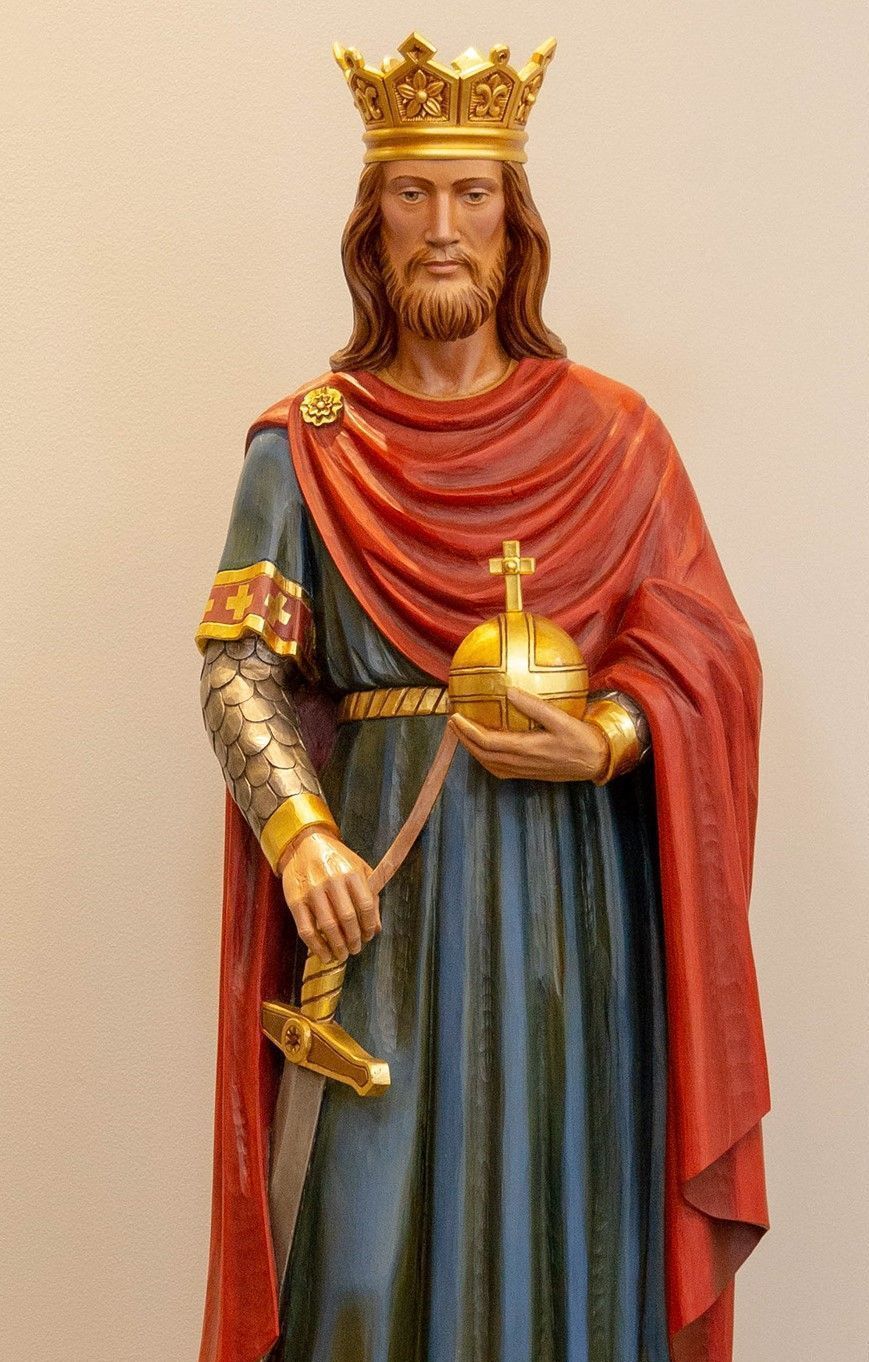Who Was St. Olaf?
Saint Olaf, Patron of Norway
c. 995-1030
Olaf Haraldsson was born in Ringerike, Norway, the son of Harald Grenske, a Viking lord who died while Olaf was a boy. As a young man, Olaf became a Viking warrior and quickly distinguished himself as a leader and strategist, succeeding his father as head of one of a number of extended families who ruled areas of Norway. During a trip to Normandy, Olaf experienced the vibrant life of French Christianity and, exchanging Viking lore for the Christian faith, was baptized at Rouen. Inspired to unite Norway under Christ, Olaf returned to his native land and won recognition as King of an united Norway from 1015-1020.
The Christianization of Norway was aided by the synod of Moster that established a legal framework for governance, known as King Olaf’s law. The decree looked to Christ as the standard for action and introduced a version of equality before the law. In 1028 King Olaf was forced into exile and fled to Russia when King Canute of Denmark invaded Norway. While in exile, he led a monastic life devoted to prayer and fasting.
In 1030 King Olaf returned to Norway in pursuit of God’s will. At Stiklestad near Trondheim, Olaf and his outnumbered forces were opposed by Danish and rebel Norwegian troops, forces against whom they fought valiantly until Olaf fell from the blow of a rebel’s axe. Olaf was buried on the banks of the River Nid. Near his grave a spring appeared and the water was accredited with miraculous healing power. The following year the bishop of Nidaros (Trondheim) declared Olaf worthy of the veneration due a martyr and ordered a chapel built on Olaf’s grave. In 1075 the chapel was replaced by a larger church, the Metropolitan Cathedral of Nidaros and Olaf’s remains were interred under the altar.
In 1164, St. Olaf received pontifical recognition and his grave became a popular destination for European pilgrims. It is for his faith, his monastic life and his heroic death that we honor St. Olaf, the perpetual King of Norway and servant of Christ.

WeConnect | By LPi